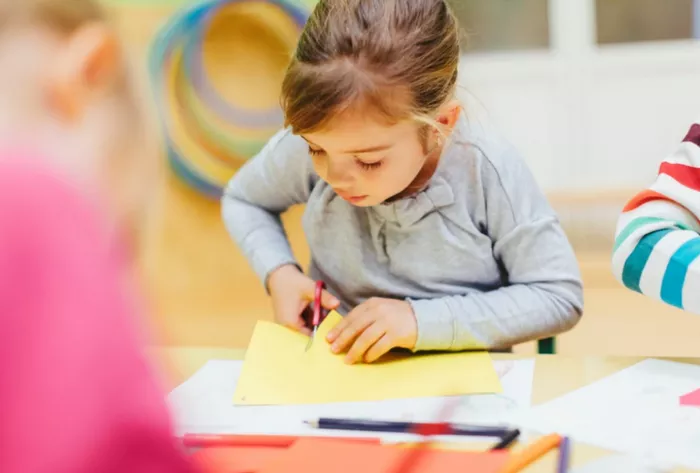Teachers are noticing that young children are having difficulties with fine motor skills and social-emotional abilities this school year. Tasks such as using scissors and pencils, following instructions, and sharing have become more challenging for students compared to five years ago, according to the Education Week State of Teaching survey.
Experts believe the disruptions caused by the pandemic play a significant role in these challenges. Amanda Fellner, an early childhood education lecturer at Teachers College, Columbia University, emphasized the importance of these fundamental skills for children’s development. She questioned how teachers are being supported to ensure these essential skills are being nurtured.
The survey, conducted in the fall, included responses from 1,500 teachers, focusing on those teaching pre-K to 3rd grade. The results showed that social-emotional skills like listening, following directions, and sharing are particularly problematic.
Teachers also reported that students are struggling with using scissors, crayons, pencils, and tying their shoes. These findings are consistent with surveys by the National Institute for Early Education Research (NIEER) at Rutgers University, which have shown similar trends in young children’s learning and development since the pandemic began.
Steven Barnett, senior co-director of NIEER, noted that the pandemic caused disruptions in preschool and kindergarten enrollment. Some children missed out on crucial interactions with peers and early intervention services. Additionally, increased screen time may have contributed to shorter attention spans and less time spent on activities that develop fine motor skills.
An equity concern has also emerged, with children of color and those from low-income households more likely to struggle with these skills. The survey found that in schools where most students receive free or reduced-price lunch, 79% of teachers reported difficulties with students tying their shoes, compared to 40% in schools with fewer low-income students. Similar disparities were noted in the use of classroom supplies like scissors and pencils.
Barnett is less worried about delays in fine motor skills, which he believes will improve with practice. However, he expressed concern about social-emotional and academic skills, which can have longer-term impacts. Students who struggle with listening, following directions, and taking turns can disrupt the classroom environment, making teaching more challenging.
Sarah Duer, director of Hollingworth Preschool at Teachers College, stressed the need for school leaders to support teachers in addressing these foundational skills. She highlighted the importance of collaboration with students’ families to adapt to their changing needs.


